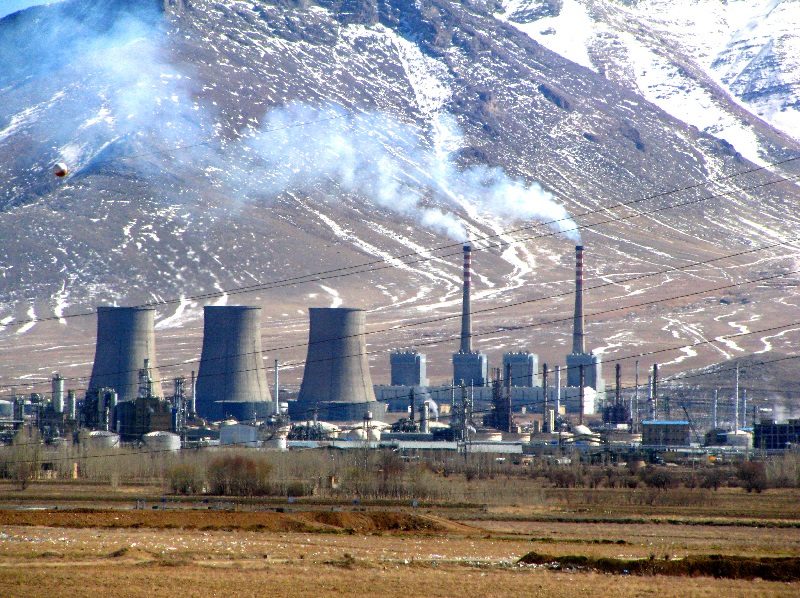


The International Atomic Energy Agency (IAEA) has reported that Iran is continuing to expand its nuclear program, even after the agency's board of governors passed a resolution condemning Tehran's lack of cooperation. The resolution, which was brought by Western powers, was the first of its kind in years and highlights growing concerns that Iran may be seeking to develop a nuclear weapon. Despite diplomatic pressure from the international community, Iran has shown no signs of slowing down its enrichment activities, sparking fears of a dangerous arms race in the region. The US has called on Iran to comply with its obligations under the IAEA without delay.
Background
Iran's nuclear program dates back to the 1950s, when it partnered with the United States to develop nuclear technology for peaceful purposes. However, in the 1979 Iranian Revolution, the country severed ties with the West and began pursuing an independent nuclear program.
In 2003, the International Atomic Energy Agency (IAEA) raised concerns about Iran's nuclear activities, suspecting that the country was developing a weapons program. Since then, the international community has engaged in diplomatic efforts to curb Iran's nuclear ambitions.
Recent Developments
In 2015, Iran signed the Joint Comprehensive Plan of Action (JCPOA), a landmark agreement with six world powers (the US, UK, France, Germany, Russia, and China). Under the JCPOA, Iran agreed to limit its nuclear program in exchange for the lifting of sanctions.
However, in 2018, the Trump administration withdrew the US from the JCPOA and reimposed sanctions on Iran. Since then, Iran has gradually withdrawn from its commitments under the agreement, including increasing its uranium enrichment levels.
Current Status
According to the IAEA, Iran is continuing to expand its nuclear program. The IAEA's report highlights that Iran is enriching uranium to 60%, a level significantly higher than the threshold allowed under the JCPOA. This has raised concerns that Iran may be moving closer to developing a nuclear weapon.
Top 5 FAQs and Answers
1. Is Iran developing a nuclear weapon?
The IAEA has not definitively stated that Iran is developing a nuclear weapon, but the agency has expressed concerns about the country's nuclear activities.
2. What are the implications of Iran's nuclear program?
Iran's nuclear program has the potential to destabilize the region and increase the threat of nuclear proliferation.
3. What is the international community doing to address Iran's nuclear program?
The US and its allies are engaging in diplomatic efforts to persuade Iran to return to compliance with the JCPOA.
4. What are the risks of a military conflict with Iran?
A military conflict with Iran could lead to a larger war in the Middle East and have devastating consequences.
5. What is the future of the JCPOA?
The future of the JCPOA is uncertain. The Biden administration has expressed a willingness to rejoin the agreement, but Iran has demanded that the US lift all sanctions first.

US President Donald Trump has expressed concern over the tone of incoming New York City Mayor-elect Zohran Mamdani's victory speech, calling it "angry" and advising him to adopt a more cooperative approach. In response, Mamdani has urged Trump to "turn the volume up" and vowed to hold "bad landlords" accountable, citing Trump as an example. Trump has hinted at offering limited federal help to New York under Mamdani's leadership, but has also expressed doubt towards the mayor-elect's left-leaning policies. This clash between the two leaders marks a tense beginning to their relationship.

Chief Election Commissioner Gyanesh Kumar flagged off 14 participants from 7 countries as part of the International Election Visitors’ Programme 2025 to witness voting in the Phase-I of the Bihar Assembly Elections. The participants attended an inaugural session and were provided with a demonstration of the EVMs and a presentation on various aspects of elections in India. The participants will then embark on a two-day tour of Bihar to visit EVM dispatch centers and witness the actual polling on November 6. Since 2014, the IEVP has been showcasing the strengths of India's electoral system and sharing best practices with international election management bodies. The first phase of the Bihar Assembly elections, featuring 121 constituencies and over 3 crore voters, will be held on November 6.

The recent police raid in Brazil, which resulted in one of the deadliest operations in Rio's history, has sparked outrage and protests. Families of the victims claimed that their loved ones were executed by the police, while the government celebrates it as a win against crime. Shocking images of bodies lined up in the street have led to widespread protests and accusations of police brutality. However, official reports and videos of victims' bodies suggest that the deaths were not a result of armed conflict, raising questions about the excessive use of force by the police.

Four people have died and 11 have been injured after a UPS cargo plane crashed near Louisville Muhammad Ali International Airport in Kentucky. All flights in and out of the airport have been suspended as police and emergency services are attending the scene. Kentucky governor Andy Beshear has described the accident as "catastrophic" and is urging residents to obey any shelter-in-place orders.

Eight people have been killed and numerous others injured after a passenger train collided with a goods train in Chhattisgarh. The accident occurred in the afternoon, halting train services on the route and prompting the cancellation or diversion of multiple trains. Emergency teams have been dispatched to the scene, with rescue operations ongoing and medical treatment being provided to the injured passengers. Helpline numbers have been issued for convenience, and the railway authorities have assured that all efforts are being made to assist those affected by the tragedy.

Today, 5 November 2025, marks the 556th birth anniversary of Guru Nanak Dev Ji, the founder of Sikhism. As we celebrate this sacred and highly revered festival, let us remember and spread the teachings of Guru Nanak Dev Ji, which promote compassion, humility, and love for all. To commemorate this occasion, indianexpress.com has compiled heartfelt wishes and messages to share with friends and family, wishing everyone endless happiness, peace, and prosperity.

During the Emerging Science Technology and Innovation Conclave, PM Modi announced the launch of the Rs 1 lakh crore Research, Development and Innovation Fund. This fund, under the Department of Science and Technology, aims to encourage private sector investments in R&D to drive India's vision of becoming an innovation-driven nation. With this fund, India's R&D expenditure has doubled in the last decade and the country now has the world's third-largest startup ecosystem. PM Modi also highlighted how India's domestic capability has accelerated during the COVID-19 pandemic due to its successful digital public infrastructure.

A stampede at the Kasibugga Venkateswara Swamy Temple in Andhra Pradesh has left 10 dead and two injured. The temple had recently reopened and was experiencing high footfall due to a festival. Home Minister Vangalapudi Anitha has ordered a thorough investigation into the causes of the tragedy and has promised strict measures to prevent similar incidents in the future.

India and the United States have strengthened their already strong ties by signing a 10-year framework for their major defense partnership. The agreement, signed during a bilateral meeting between the two countries' defense ministers, emphasizes the importance of this partnership in maintaining a free and open Indo-Pacific region. This marks a significant step in solidifying the bond between India and the US in the defense sector.

In preparation for a major tri-service military drill, India has issued Notices to Airmen (NOTAM) for the entire northeastern region that borders China, Bhutan, Myanmar, and Bangladesh. The first set of exercises will commence in November and continue through January, signaling enhanced operational readiness for the Indian Air Force (IAF). This move is significant as the Northeast remains a sensitive theater, making up the boundary with four countries, including China. The upcoming IAF exercises aim to strengthen India's air dominance, effectively preparing for any potential challenges along the western frontier with Pakistan.